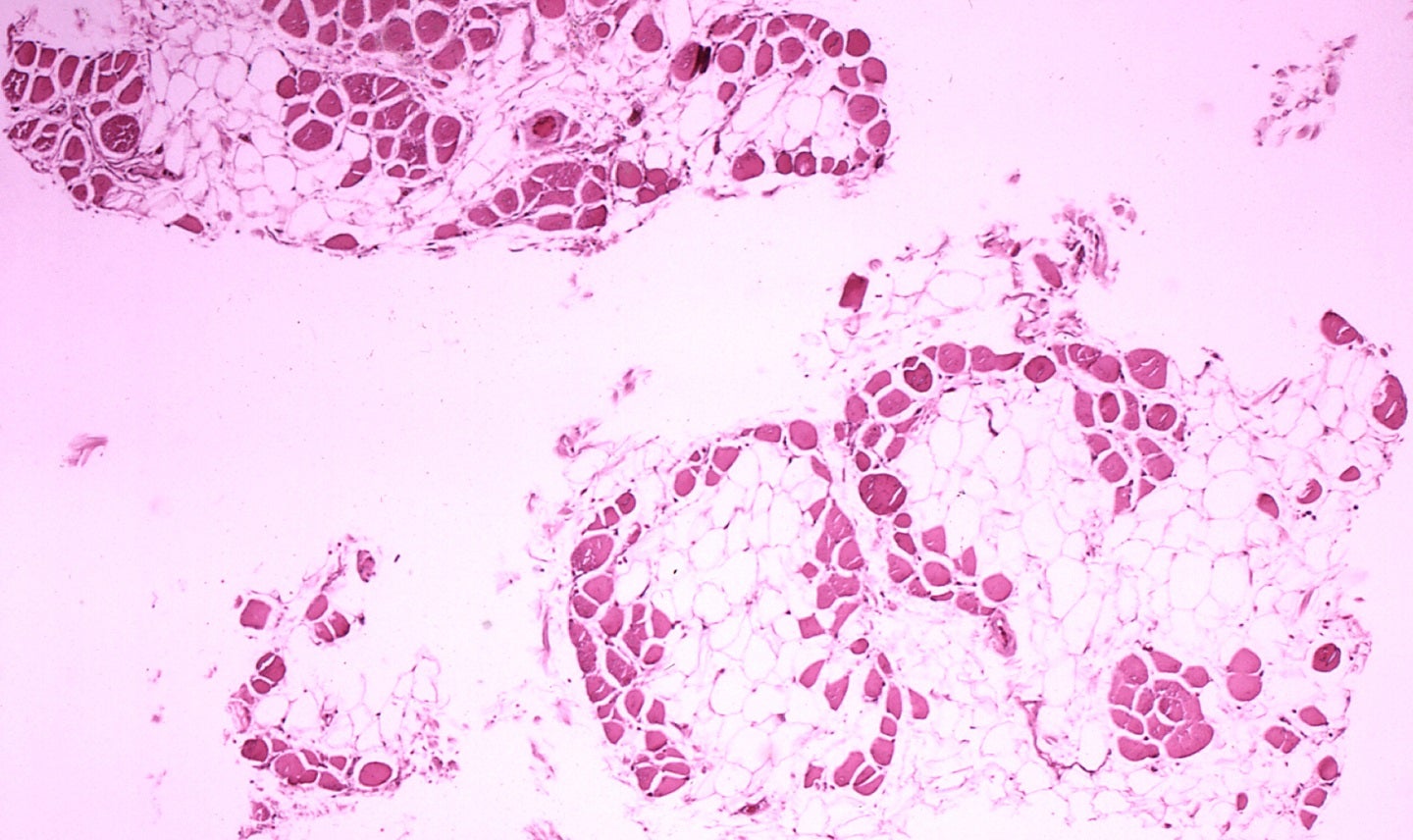
US-based biotechnology company PepGen has secured a no objection letter for its clinical trial application from Health Canada to begin a Phase II trial of PGN-EDO51.
The CONNECT1-EDO51 trial will evaluate PGN-EDO51’s ability to treat Duchenne muscular dystrophy (DMD) patients amenable to an exon 51 skipping approach.

Discover B2B Marketing That Performs
Combine business intelligence and editorial excellence to reach engaged professionals across 36 leading media platforms.
It will evaluate dystrophin levels, exon skipping and safety data after different doses of PGN-EDO51 in these patients, as well as the drug’s tolerability, pharmacokinetics and clinical assessments.
The open-label, multiple ascending dose (MAD) trial is due to start dosing patients in the second half of this year.
As part of the trial, PepGen aims to assess PGN-EDO51 in around three cohorts of ambulatory and non-ambulatory boys and young men, beginning at a dose of 5mg/kg.
The firm expects to increase the dose to 10mg/kg and potentially introduce other doses after a review from the Drug Safety Monitoring Board (DSMB).

US Tariffs are shifting - will you react or anticipate?
Don’t let policy changes catch you off guard. Stay proactive with real-time data and expert analysis.
By GlobalDataIt expects an initial data readout by mid-next year.
PepGen senior vice-president and clinical development head Michelle Mellion said: “PGN-EDO51 exhibited the highest levels of oligonucleotide delivery and exon 51 skipping in a clinical study following a single dose of 5mg/kg, 10mg/kg and 15mg/kg in healthy volunteers when compared to publicly available clinical data for other exon 51-skipping approaches.
“At these dose levels, the majority of treatment-emergent adverse events were assessed as mild and resolved without any intervention.
“Looking ahead, and based on our nonclinical data, we believe CONNECT1-EDO51 may support a differentiated profile for PGN-EDO51 relative to other investigational and approved therapies based on previously observed meaningful and durable data on dystrophin production, as well as clinical assessments.”
Based in Massachusetts, PepGen is a clinical-stage biotechnology company that aims to develop the next generation of oligonucleotide therapies for severe neuromuscular and neurological diseases.
The company makes use of cell-penetrating peptides to increase the uptake and activity of conjugated oligonucleotide therapeutics.





